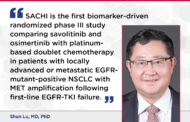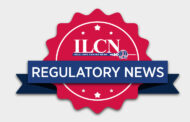The IASLC has established authority as the only global multidisciplinary organization dedicated to overcoming the four major thoracic malignancies- esophageal cancer, lung cancer, mesothelioma, and thymic malignancies. As we enter the molecular age with the promise that personalized cancer treatment will improve treatment and outcomes for our patients, major barriers are arrayed before us. How do we best seize the opportunity of biomarker-driven treatment? How do we integrate our new, chaotic, fast-moving, ever-expanding knowledge base into pre-existing structures of diagnosis, prognostication, and treatment? How do we accelerate the pace of discovery and the implementation of our findings in diverse global populations? How do we minimize, or ideally, prevent, the otherwise inevitable emergence of care and outcomes disparities? The Journal of Thoracic Oncology’s ‘Lung Cancer Worldwide’ series eloquently articulates the striking differences in care for lung cancer between populations across our global community. Encapsulating that knowledge and using it to optimize the applicability of biomarker-driven care for thoracic malignancies is a global challenge that the IASLC is uniquely positioned to accomplish.
With the 7th and 8th editions of the TNM Classification for Thoracic Cancers, the IASLC, through the Staging and Prognostic Factors Committee, has assumed responsibility for gathering, analyzing and interpreting data from which recommendations are made to the American Joint Committee on Cancer (AJCC, for the United States) and to the Union for International Cancer Control (UICC, rest of the world) to revise the alphabet that makes up our lingua franca—the AJCC/UICC TNM Classification of Malignant Tumors staging system. The database for the 9th edition of the staging system is now being constructed. For the first time ever, the Staging and Prognostic Factors Committee is also constructing a Molecular Database; our ambition is to curate high-quality data with which to accelerate our understanding of the prognostic and predictive values of biomarkers relevant to the full stage spectrum of the four different thoracic malignancies. An overview of this project, “The International Association for the Study of Lung Cancer (IASLC) Molecular Database Project: Objectives, Challenges and Opportunities,” was recently published in the Journal of Thoracic Oncology.1
This white paper gives a broad overview of the objectives of the IASLC Molecular Database Project and is a call for colleagues around the world to collaborate in this opportunity to accelerate our entry into the molecular era. It provides details on the process of participation, and pragmatic reasons why this collaboration is mutually beneficial for our patients, providers, institutions, interested organizations, and the global community of researchers in thoracic malignancies.
Objectives of the Molecular Database Project
The objectives are multifold:
- Provide a global platform for a deeper, broader understanding of the value of molecular testing and targeted therapy for prognostication, prediction, and treatment selection across the full spectrum of TNM stage.
- Evaluate novel single or multiple prognostic markers that could add biological information regarding the outcome of patients in the different TNM stages for formal consideration of inclusion in the 9th edition.
- Generate evidence in a set of highly characterized lung cancers with complete clinical, pathologic, and staging information to support the role of biomarkers in lung cancer diagnosis, prognosis, and treatment selection, across the stage spectrum.
- Gather evidence to support advocacy for routine genomic testing, where appropriate.
- Define important research questions that might be the focus of observational studies, pragmatic trials, and clinical trials of existing and emerging biomarkers and therapeutics.
- Invite applications for projects to analyze the molecular database.
The bottom line: a large, robust, well-curated global database of molecular information, rigorously hardwired to high quality TNM datasets, can provide the impetus for a quantum jump into the golden age of personalized cancer care. The IASLC, in collaboration with partners in Cancer Research And Biostatistics (CRAB), is probably the only organization with the heft, influence, and technical capability to construct, manage, and optimally deploy such a global database. Successful construction of the database will be a gift that keeps on giving back to all stakeholders in the struggle against thoracic malignancies. We call on all colleagues across the world to actively collaborate and submit their data.
- 1. 1. Osarogiagbon RU, Rami-Porta R, Tsao MS, et al; members of the IASLC Molecular Sub-Committee and the Staging and Prognostic Factors Committee. The International Association for the Study of Lung Cancer (IASLC) Molecular Database Project: Objectives, Challenges and Opportunities. J Thorac Oncol. 2021:S1556-0864(21)01781-01790. Epub ahead of print.






